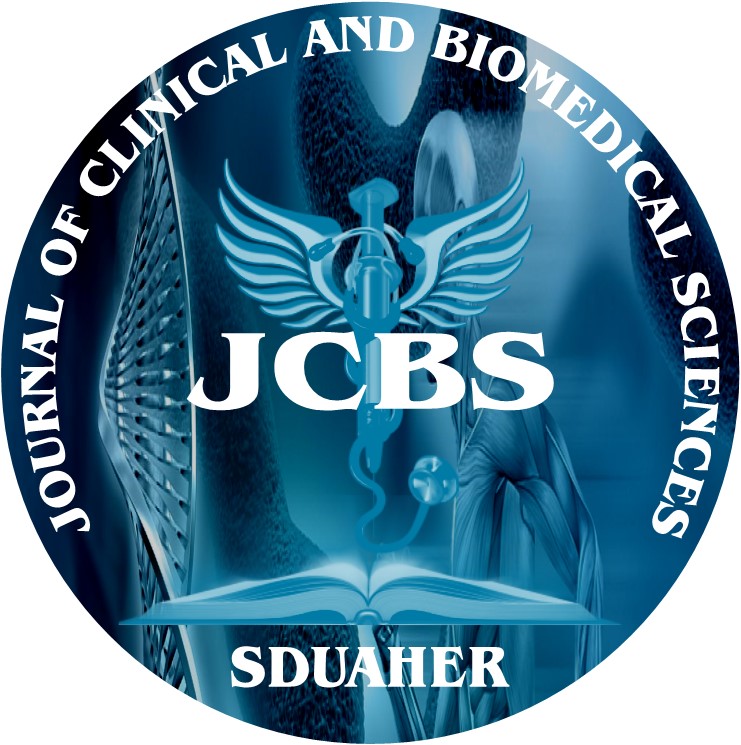


Journal of Clinical and Biomedical Sciences
Year: 2021, Volume: 11, Issue: 1, Pages: 21-25
Original Article
Jagadish Tavarekere V1, Gomathy E2, Mitesh shetty3, Sharath Balakrishna4*
1. Research Assistant , Department of Cell Biology and Molecular Genetics, Sri Devaraj Urs Medical College, Sri Devaraj Urs Academy of Higher Education and Research, Kolar.
2. Professor, Department of Obstetrics and Gynaecology, Sri Devaraj Urs Medical College, Sri Devaraj Urs Academy of Higher Education and Research, Kolar.
3. Visiting Faculty, Department of Cell Biology and Molecular Genetics, Sri Devaraj Urs Medical College, Sri Devaraj Urs Academy of Higher Education and Research, Kolar.
4. Associate Professor, Department of Cell Biology and Molecular Genetics, Sri Devaraj Urs Medical College, Sri Devaraj Urs Academy of Higher Education and Research, Kolar
*Corresponding Author
E-mail: [email protected]
Mobile No: 9686235790
Background: Preeclampsia is a pregnancy-related complication characterized by increased blood pressure without any history of hypertension. Confined placental mosaicism is the presence of chromosomal abnormalities in the extra-embryonic tissue such as placenta. The association between confined placental mosaicism of chromosomal aneuploidy and preeclampsia in the Indian population is unknown. Objective: To determine the association of confined placental mosaicism of chromosomal aneuploidy with preeclampsia. Methods: Cross-sectional study was designed to find the association of confined placental mosaicism and preeclampsia. Placenta (trophoblasts) (n=17), cord blood (n=8), and both placenta (trophoblasts) and cord blood (n=8) samples were collected from preeclamptic women after delivery. The samples were then processed and analyzed to find the mosaicism in trisomy 13 (13q14) and 16 (D16Z2) using FISH and karyotyping. Results: Both FISH and karyotyping analysis showed that there was no chromosome 13 (13q14) and 16 (D16Z2) mosaicism in both placenta (trophoblasts) and cord blood samples, collected from preeclamptic women after delivery. The results suggest that confined placental mosaicism was not observed in preeclamptic women. Conclusion: The results showed that the confined placental mosaicism of chromosome 13 (13q14) and 16 (D16Z2) aneuploidy is not associated with preeclampsia. Keywords: Preeclampsia, Confined Placental Mosaicism
Subscribe now for latest articles and news.